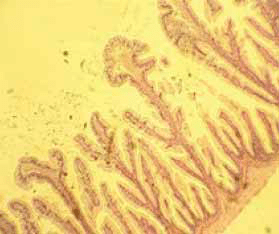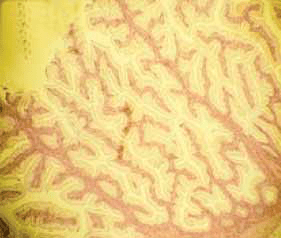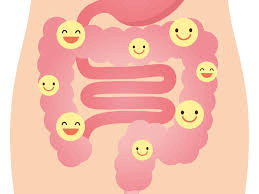No products in the cart.
How long does a cell live?

Do you know how old your intestine or your liver is?
You might think that it is as old as you are, but it is not. A complete regeneration happens on average every 8 years for most of your body. Your small intestine gets regenerated every 2-4 days while your liver is completely regenerated (new) every year. Have a look at the table below to get an idea of how long certain cells, tissue and organs live.
Lifespan of cells in the body

In the above table there are cells that have a very long lifespan, like the cells of the brain or bone (25-30 years). The cells with a very short lifespan i.e. the cells of the immune system (replaced every 1-5 days), the cells of the stomach lining (only 2 days) and the cells of the small intestine (also referred to as “the gut”), which only live for 2-4 days.

Recent research has confirmed that our brains have the capacity to make new connections, but in a different way compared to other organs. When the brain is injured, the cells go back to an embryonic age (similar as to when we were still developing), and are then capable of re-growing new connections that help restore lost function. This only happens under very special conditions, unlike other cells that regenerate in normal cell division (see mitosis below).
Most cells in your body that have a nucleus contain DNA. The formation of any new cell starts with the doubling of the DNA strands within the cell itself. MITOSIS is doubling and dividing of a cell.
Mitosis (cell division)

Each cell first needs to replicate its own DNA before the cell division process can continue. When a single cell has duplicated and divided, the newly formed cells are called daughter cells.
This doubling of the DNA requires at least 6 billion Nucleotides.

Did you know: Mitosis requires more than 6 billion Nucleotides per cell in humans.
Let’s recap on some of the interesting facts about Nucleotides which are molecules, also called DNS which are the basic building blocks of our genetic material
They are very important for:
- energy transfer (ATP/GTP are the energy carrying molecules in the
body and the A and the G are both nucleotides) - production of protein and building of muscle
- essential in DNA repair and duplication – mitosis
- mucosal repair – this is the critical lining of our gut
- mediation of hormone signals
- immune function
- Nucleotides are involved in almost all activates within the cell.
Remember we have discussed that you are not what you eat – but rather what you absorb? Therefore the next question might be…………
How to improve absorption in the gut?
Here, the way in which the cells of the lining of our gut are able to divide and arrange themselves structurally is important. I want to compare this to building a wall with just enough bricks, maybe even too few bricks or making of half bricks. The end result will be an unstable wall with holes.
Similarly, if there are insufficient Nucleotides available, cell division in the gut lining cannot keep up with the demand for new cells to build a perfect lining.
Remember……..
- The gut lining / small intestine gets replaced every 2-4 days, and
- The surface area of the gut lining is the size of a tennis court.
Does this paint a better picture of the massive amounts of Nucleotides needed to build an intact lining in the gut?
See the difference with Nucleotides


The left picture shows the typical length and structure of the finger-like protrusions that line our gut (the villi) . In addition, the picture on the right portraits the same gut lining, photographed 3 weeks later after
supplementing with Nucleotides. Can you see better development in the length and structure of the villi? A notable difference and it shows how a well developed gut lining should look like to enable proper absorption.
Supplementing with Nucleotides assists the bacteria in the gut to grow better. There are lots of bacteria in the gut like Bifidobacteria (the
good bacteria) which are not able to produce enough of their own
Nucleotides for their multiplication.
They play a critical role in regulating the acidity in our gut by excreting butyric acid. Because this is an important function, which is needed for proper absorption, they are sometimes also called butyrate’s .
Improvement of growth and differentiation of the gut lining will:

- provide more space for the good bacteria to grow and live in
- enable “gaps” in the lining (leaky gut) to heal faster
- make the villi grow longer to function better and increase the surface area for absorption
- improved the use and uptake of other nutrients
- and improved recovery of the intestine (gut) after starvation or diarrhea.
Brought to you by: NucleoCell Nutrition – Nutrition for your DNA

Loved the sample bars – Thank you Dorne’. Interested in your supplements
hi Michelle
have you tried our nucleotide containing products? Please make contact on 0825665450. woudl love to chat.
regards
Rentia
Dear Michelle, thank you for feedback on our NucleoCell healthy snack bars. Would love to send you more information on our NucleoCell supplements as per your request, will ask Dorne for your contact details, thank you!